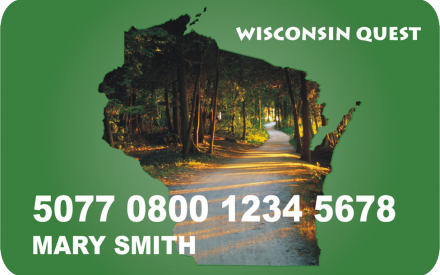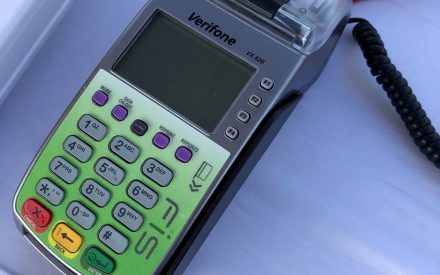Many people are struggling to afford the food they need during the COVID-19 public health emergency. Across Wisconsin and the nation, many households have lost some or all of their regular income. Others have lost access to usual sources of food, such as school meals and senior meal programs. The information below provides information about public programs and community resources to help meet food needs during this crisis. We will continue to update this page with new and changing information.
Wisconsin 211
What is Wisconsin 211?
Wisconsin 211 connects you with nonprofit and government services in your area. You can use the 211 website to look for services in your area, or you can call 211 (or 877-947-2211) at any time.
FoodShare
What is FoodShare?
FoodShare Wisconsin helps families across Wisconsin to afford the food they need. The program provides eligible households with a debit card (called the QUEST Card) that is automatically loaded each month with funds to buy food. The QUEST Card can be used at most grocery stores, and at some Farmers’ Markets and other locations. It can only be used for food.
Each month, hundreds of thousands of people around the state use FoodShare. Some are people who have a job but need additional resources to afford food; others have lost their job, or are retired or disabled or not able to work. Many people who have not used FoodShare before have started participating since the COVID-19 emergency began.
Am I eligible for FoodShare?
Eligibility is based on household size and income. You must also be either a U.S. citizen or a legal permanent resident for at least five years. For information about eligibility, see the DHS web page on income limits.
You can use the ACCESS website to see if you qualify for FoodShare and other programs.
How do I apply for FoodShare?
DHS has a website with information about the different ways to apply for FoodShare. For many people, applying online through the ACCESS website is the easiest method.
Feeding Wisconsin has a FoodShare Helpline. They can answer questions about FoodShare and help you to apply. The phone number is 1-877-366-3635, and they are available Monday through Friday, 8:30 a.m. to 4:30 p.m. More information is available at the Get-a-Quest-Card website.
How much are FoodShare benefits, and are they higher during the COVID-19 emergency?
FoodShare benefits are based on household size and income. The maximum benefit is $234 for 1 person, $430 for two people, $616 for three people, and $782 for four people. The benefit continues to increase for larger households. Benefit amounts are lower than these maximums when households have other income.
Because of the COVID-19 emergency, all FoodShare recipients are temporarily eligible to receive higher benefits than the standard amount. Additional information on this and other temporary changes are available from DHS.
Are there other changes to FoodShare during the COVID-19 emergency?
During the pandemic, there have been periodic, temporary changes related to work requirements, application processes, renewal periods, and other related rules and processes. See the DHS website for the latest information.
Can I use FoodShare to shop for food online?
Wisconsin has received approval to begin allowing use of FoodShare to purchase food online, in certain circumstances. FoodShare participants may use their benefits to shop online at Amazon and Walmart. When purchasing food from either of these vendors, you will be able to choose an EBT card payment option and enter card details; you will be asked for a PIN each time you check out.
These are the two grocery retailers that are already set up at the national level to support use of these benefits. The Wisconsin Department of Health Services will support other Wisconsin-based retailers as they work with the U.S.D.A. to become authorized to support online FoodShare purchasing.
In addition, some retailers allow FoodShare participants to order online for pick-up services and to then use their benefits in person. Individual stores can provide information about whether they support this option.
Only eligible food may be purchased with FoodShare benefits; delivery fees and other associated charges may not be paid for with FoodShare.
Can I use FoodShare at my local farmer's market?
Many farmer’s markets accept FoodShare benefits either at specific vendors or at the entire market. Check with your local market to see if they participate in the FoodShare EBT Program.
Can somebody else shop for me using my FoodShare benefits?
Some FoodShare users can add an authorized buyer to their account. Information about this option, including the necessary forms, is available here.
Will Unemployment Insurance benefits impact my FoodShare benefit?
In general, unemployment Insurance benefits are counted as income when determining eligibility and benefit amount for FoodShare. However, Wisconsin recently received funding from the Lost Wages Assistance Program to provide an additional $300 unemployment benefit per week to eligible individuals unemployed due to Covid-19, and this benefit does NOT count as income for determination of FoodShare eligibility.
Replacing School Meals
What is Pandemic-EBT?
Pandemic EBT (or P-EBT) is a temporary program that provides benefits for children who normally receive free or reduced price meals at school. It covers the value of the meals that would have been provided at school. This program provides funds on an EBT card, and these funds can only be used for food. It is not the same program as FoodShare. However, the benefits are used in the same way, and some families receive their P-EBT benefits on the same card as their FoodShare benefits. You do not have to participate in FoodShare to receive P-EBT.
P-EBT benefits are not included in ‘Public Charge’ rules and will not have negative impacts on immigration status.
You may also use P-EBT benefits to shop online at Amazon and Walmart. When purchasing food from either of these vendors, you will be able to choose an EBT card payment option and enter card details; you will be asked for a PIN each time you check out. Benefits may only be used for eligible food; P-EBT will not cover delivery fees or other associated charges.
How do I get Pandemic-EBT for my eligible kids?
Many families whose children qualify for Pandemic-EBT will receive benefits automatically, while some families may need to fill out an application. More information about P-EBT, including who is eligible, how to fill out an application if necessary, and when benefits are issued, is available from DHS.
Where can I find meals for my school-age children?
School districts and community organizations around the state have made arrangements to provide meals for kids during the pandemic. These arrangements are different from place to place. Children can continue to get meals through their district and/or other community based organizations, even if they also participate in P-EBT.
To find out about meals for children in your area, check with your school or school district website. In many counties, your county Extension office can provide information about meals for kids.
WIC
What is the WIC program? Am I eligible?
The Special Supplemental Nutrition Program for Women, Infants, and Children (WIC) is a nutrition program for pregnant women, infants, women who are breastfeeding, postpartum women, and children younger than age 5. The program provides nutritious foods, infant formula, as well as nutrition education and other support. Income and other eligibility information is available from DHS. To find out more, or to apply for WIC, you can contact your county WIC office.
WIC benefits are not included in ‘Public Charge’ rules and will not have negative impacts on immigration status.
Emergency Food
How can I find and use food pantries in my community?
Hundreds of food pantries around the state are providing households with needed food during the COVID-19 emergency. Pantries have adapted their normal procedures so they can distribute food safely. Many are providing pre-packed boxes of food, and many are using curbside or drive-through pickup options. 211-Wisconsin can help connect you with food pantries and other assistance. You can use the website to find information, or you can call 211.

 How to shop with SNAP benefits at Wisconsin's farmers markets
How to shop with SNAP benefits at Wisconsin's farmers markets How to accept FoodShare (SNAP) benefits at your farmers market
How to accept FoodShare (SNAP) benefits at your farmers market Feeding your baby from six to twelve months
Feeding your baby from six to twelve months Helping toddlers try vegetables
Helping toddlers try vegetables


